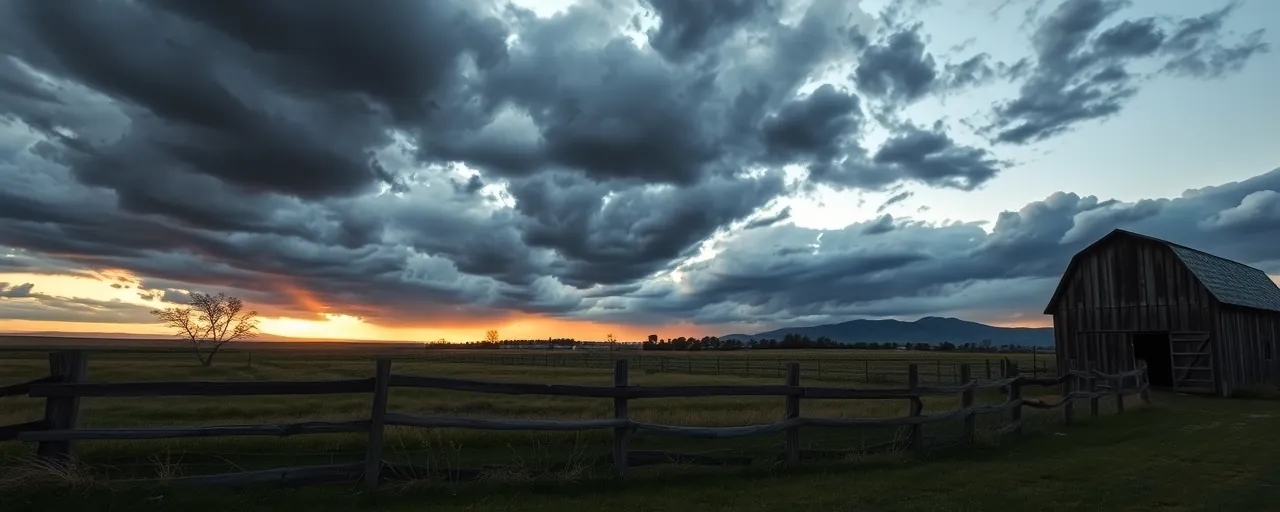Promises That Don’t Add Up
Idaho’s farmers heard big news this week. A trade agreement with the United Kingdom, praised by the White House, is being sold as a game-changer for agriculture. Duty-free quotas for beef and ethanol, plus lower tariffs on steel, sound like a lifeline for Idaho’s potato fields and cattle ranches. But the excitement fades when you look closer. This deal isn’t the win it’s cracked up to be.
Who really benefits from these new market openings? The answer matters to every farmer in Idaho, from the family running a small dairy to the rancher tending a modest herd. Trade deals shape lives, not just spreadsheets. Yet this agreement seems designed to favor the biggest players, leaving smaller producers to fend for themselves.
Idaho’s rural communities, built on the grit of family farms, deserve a deal that puts them first. Instead, this agreement risks widening the gap between corporate giants and the hardworking people who keep our state’s agricultural heart beating. Why are we celebrating a policy that could erode the very foundation of our rural economy?
The question isn’t whether trade is good; it’s whether this trade deal delivers for the farmers who need it most. Spoiler alert: it doesn’t. Let’s unpack why this agreement falls short and what’s at stake for Idaho’s future.
Corporate Farms Win, Small Farmers Lose
The deal’s headline numbers grab attention: 13,000 metric tonnes of beef and 1.4 billion liters of ethanol can now ship to the UK without tariffs. For Idaho, that could mean more demand for barley and cattle. But the benefits skew heavily toward large-scale producers. Groups like the National Cattlemen’s Beef Association, representing industrial operations, are cheering, and for good reason. They have the resources to dominate export markets.
History shows where this leads. When NAFTA opened new markets in the 1990s, corporate agribusiness thrived while small farmers grappled with falling prices and consolidation. The 2018-2020 US-China trade war cost agriculture $27 billion in exports, and the $28 billion in relief payments mostly propped up big operations. Small farmers, including those in Idaho, were left navigating a tougher market.
This deal repeats the pattern. Its focus on high-volume exports favors efficiency over fairness. Small ranchers in southern Idaho can’t compete with industrial giants that control supply chains. Worse, the agreement ignores practical barriers, like the costly logistics of exporting via the Columbia-Snake river system, which hit smaller producers hardest.
Sacrificing Sustainability and Fairness
If you value clean air, healthy land, or fair pay for workers, this deal raises serious concerns. Advocates for sustainable farming have long argued that trade agreements must protect the environment and labor rights. While the UK’s bans on hormone-treated beef and chlorinated chicken remain, this deal lacks bold commitments to address climate change. Where are the measures to reduce emissions from global shipping or to safeguard Idaho’s rivers from industrial runoff?
Democratic lawmakers and environmental groups have called for trade policies that support our planet and people. They’ve pushed for clear labeling standards and protections for small farms. Yet this agreement, pushed through with little debate, brushes these priorities aside. It’s a step backward from the kind of forward-thinking trade we need.
Farmworkers, the backbone of Idaho’s fields, also lose out. The deal’s weak labor provisions offer no real guarantees of fair wages or safe conditions. Without stronger protections, we’re failing the very workers who keep our food system running.
A Vision for Fairer Trade
Defenders of the deal claim it bolsters our ties with the UK and creates jobs. They tout the $5 billion in export potential as a win for rural America. But whose jobs are we saving? Large corporations stand to gain, while small farmers face mounting pressures. Idaho’s family farms need policies that level the playing field, not ones that stack the deck against them.
We can do better. Trade deals like the USMCA showed what’s possible, with stronger labor standards and targeted support for dairy farmers. Why not demand similar protections here? Imagine a deal with incentives for low-carbon farming or subsidies to help small producers reach global markets. That’s the kind of trade policy Idaho deserves.
Our state’s agricultural legacy rests on family farms, not corporate boardrooms. We need trade agreements that invest in sustainable practices, protect workers, and empower small producers to thrive in a global economy.
Standing Up for Idaho’s Future
Idaho’s farmers deserve more than empty promises. This trade deal, with its bias toward big business, threatens to leave our rural communities struggling. We need leaders who will champion family farms and fight for policies that reflect our values. Why accept a deal that prioritizes profits over people when we could demand one that strengthens our state?
The way forward is clear. Let’s advocate for trade policies that protect our environment, uplift our workers, and give small farmers a fair shot. Idaho’s agricultural heritage is worth defending, and it starts with rejecting deals that put corporate interests first.
Together, we can build a future where trade supports our communities and our planet. Let’s stand with the farmers who feed us and fight for a fairer, greener tomorrow.
